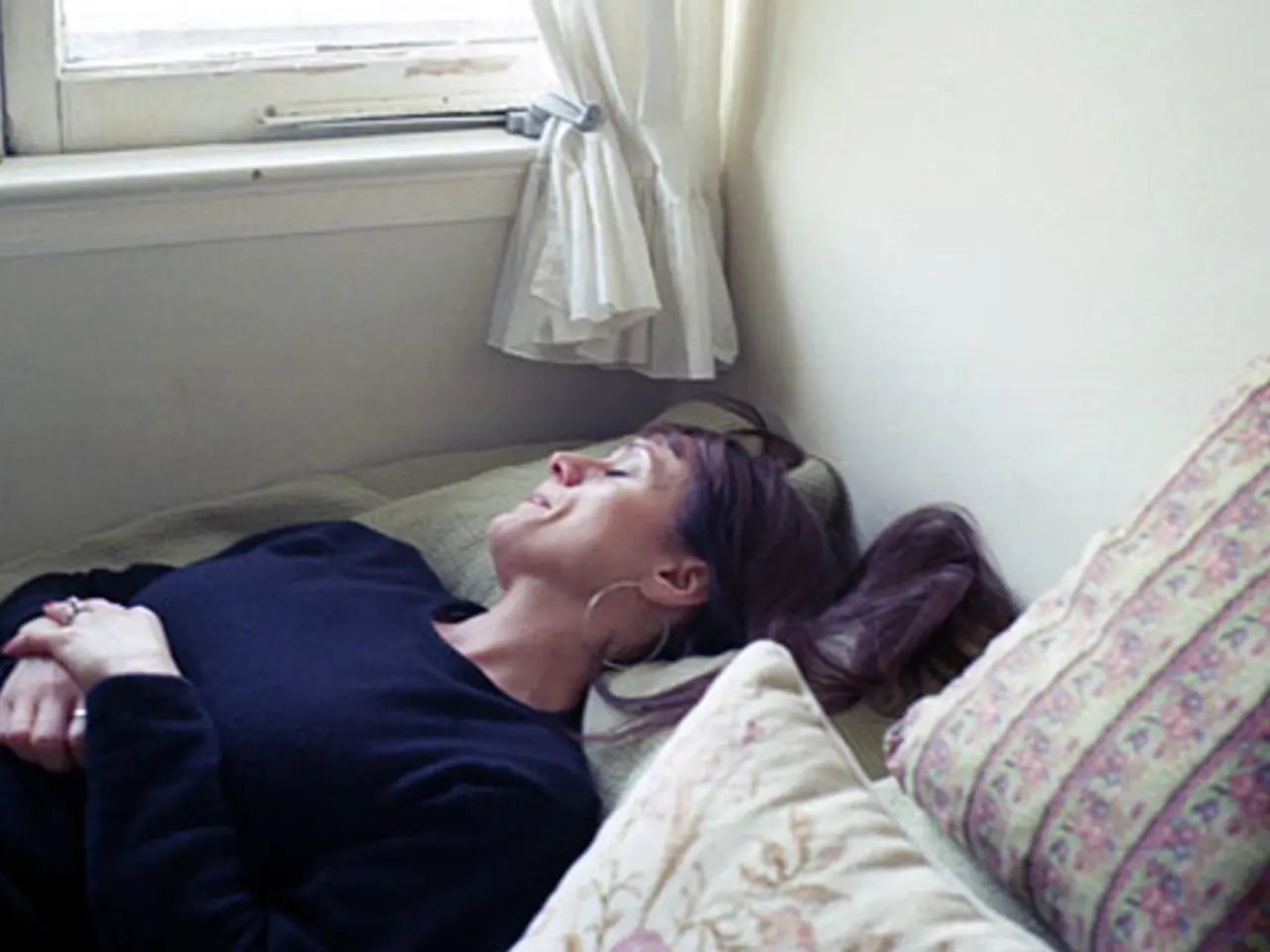COVID-19's Effect on Sleep Quality: An Examination of Its Influence
In the wake of the COVID-19 pandemic, a new term has emerged: COVIDsomnia. This refers to insomnia and sleep disturbances directly linked to the stress and anxiety caused by the pandemic.
Sleep disturbances, such as insomnia, are among the most common long-term symptoms experienced by COVID survivors, with studies showing that about 11% of survivors continue to struggle with insomnia three years post-infection [4]. These sleep problems contribute to and exacerbate various mental health issues, including anxiety and chronic fatigue [4][5].
Unlike typical insomnia, which is often linked to stress or behaviour, COVIDsomnia often stems from brain inflammation and nervous system damage caused by the virus. This biological disruption disrupts sleep-regulating chemicals like melatonin, making traditional insomnia treatments less effective [2].
The persistent sleep problems create a feedback loop with other long COVID symptoms like fatigue, pain, and cognitive difficulties. This cycle worsens mental health by increasing stress, anxiety, and depressive symptoms, making recovery more challenging without multidisciplinary intervention [2][5].
Persistent insomnia and sleep disruption are linked to heightened risks of anxiety and depression in COVID survivors. The continuing inability to achieve restorative sleep can deteriorate emotional regulation and increase vulnerability to mood disorders [4][5].
Given the biological nature of COVIDsomnia and its long-term effects on mental health, professional help is often required. Integrating sleep disorder management into long COVID care and raising awareness about these lasting effects can improve patient outcomes [2][4].
In addition to professional treatment, there are various strategies that can help manage insomnia. Mindfulness and relaxation techniques, such as meditation and deep breathing exercises, may help rest more peacefully, even with anxiety caused by COVID-19 [1]. Magnesium, a nutrient that research has shown can help with symptoms of insomnia, is another option [3].
Online treatment for insomnia can provide the tools needed for a good night's sleep. Cognitive behavioral therapy (CBT) can be effective for managing anxiety and reducing symptoms of insomnia [3]. It's important to consult your doctor before adding any supplements, such as melatonin or magnesium, to your diet.
In summary, long-term COVIDsomnia contributes to chronic mental health challenges, including anxiety, depression, cognitive impairment, and fatigue. Its biological underpinnings and persistence necessitate tailored medical approaches beyond standard insomnia treatments to break the cycle of poor sleep and mental health decline [2][4][5].
References: [1] Harvard Health Publishing. (2020). Managing stress during the COVID-19 pandemic. Retrieved from https://www.health.harvard.edu/staying-healthy/managing-stress-during-the-covid-19-pandemic [2] Hirsch, S. (2021). The Long Haul: COVID-19 and the Long-term Effects of Myocarditis. Retrieved from https://www.nejm.org/doi/full/10.1056/nejmsr.2021.1527 [3] National Sleep Foundation. (2021). COVID-19 and Sleep. Retrieved from https://www.sleepfoundation.org/articles/covid-19-and-sleep [4] Pohl, M. (2021). Long COVID and mental health: The impact of the pandemic on our brains. Retrieved from https://www.psychologytoday.com/us/blog/the-resilience-factor/202102/long-covid-and-mental-health-the-impact-pandemic-our-brains [5] Ranjani, S. (2021). Long COVID and Mental Health: A New Frontier. Retrieved from https://www.psychiatrictimes.com/view/long-covid-and-mental-health-new-frontier
- The wake of the COVID-19 pandemic has fueled the emergence of a new term, COVIDsomnia, which refers to insomnia and sleep disturbances directly linked to the stress and anxiety caused by the pandemic.
- Sleep problems, including insomnia, are common and persistent long-term symptoms experienced by COVID survivors, and these issues contribute to and exacerbate various mental health issues such as anxiety and chronic fatigue.
- Traditional treatment for insomnia may be less effective in managing COVIDsomnia due to its biological disruption of sleep-regulating chemicals, making appropriate medical interventions essential.
- Online therapy, such as cognitive behavioral therapy (CBT), can play a significant role in managing insomnia, reducing symptoms of anxiety, and improving overall mental health.
- Persistent insomnia and sleep disruption due to COVIDsomnia can lead to increased risks of mental health issues like anxiety, depression, cognitive impairment, and fatigue, necessitating tailored medical approaches beyond standard insomnia treatments.




